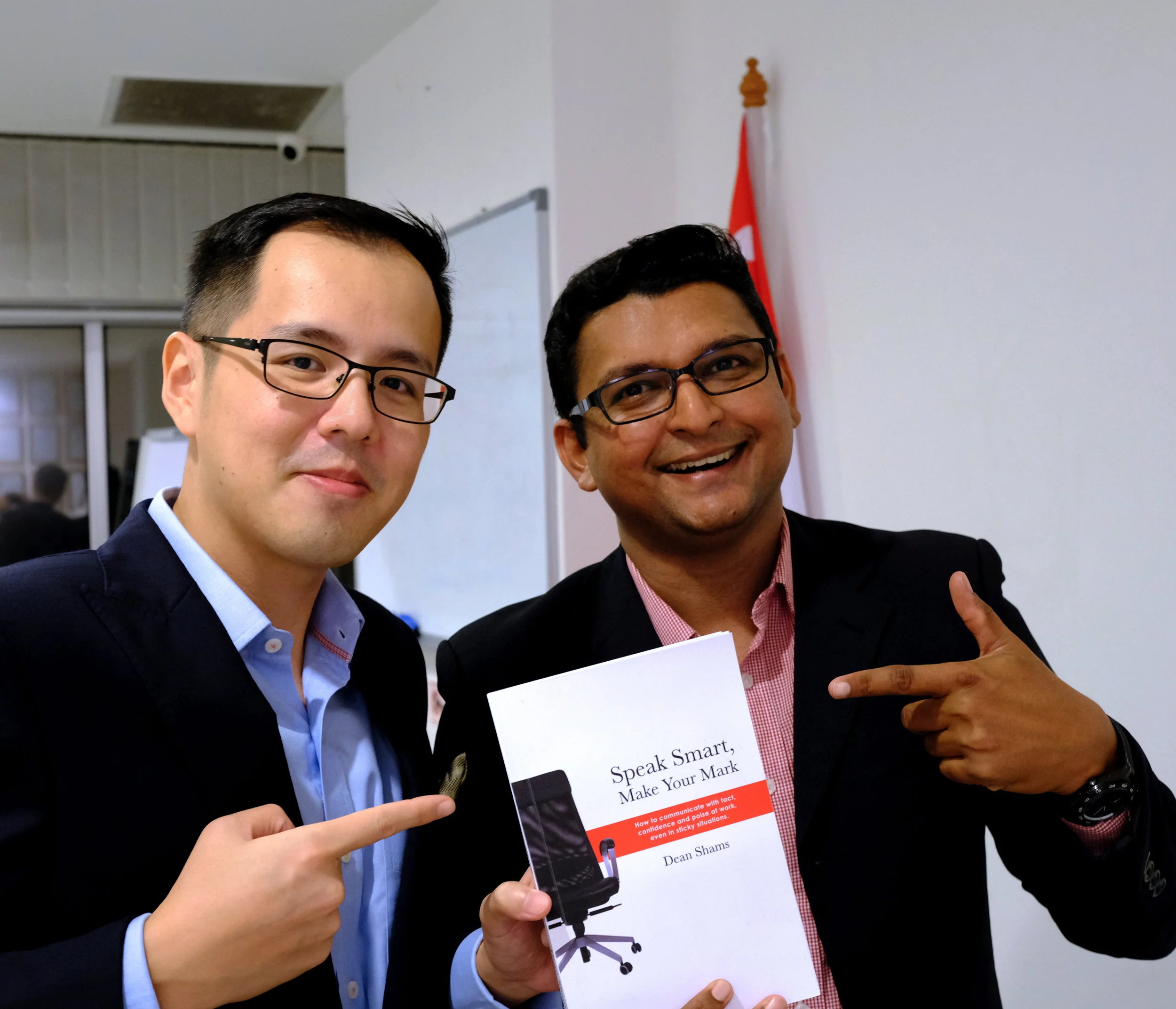On Thursday night, I was privileged to have hosted the 131st APTS meeting.
Our VP, Eugene Seah, shared about ensuring that we are always bettering ourselves so that we can be ready to take advantage of any opportunities that present themselves. He also advocated the use of self-recorded videos of our presentations, that clients can have a preview of what we offer before they decide if we are suitable for their training requirements.
These are excellent reminders and I shall record a more recent video of my training. The last one was taken quite a few years ago and has been lying dormant in a folder in my computer.
Next, we had Dean Shams to take the platform. Dean has an impressive skillset, one that many of us would be proud to have. He regularly writes articles of 400 words or more in 30 minutes or less.
As an author myself, I know how difficult it is. I had much to learn.
The first thing he told us was that Writers' Block was imaginary. It appears only because we believe we have it.
He had only 3 main steps, which all sound all-too-easy:
Step One: Plan
Step Two: Write
Step Three: Edit
That's it? Well, not quite. He was quick to add that each step has to stand alone and that mixing them is a sure way of slowing down your progress.
What that means is: When you're planning, don't write or edit. When you're writing, don't edit or plan. When you're editing, stop planning or adding content.
Next, he broke it down for us:
1) Write to one person
2) Have an opinion, starting from your emotions
3) Write your main message in 10 words or less so you'll know if you're going off course
4) Focus on at least 1 of 3 outcomes: Think, Feel, Do
5) Start with the conclusion (in 3 sentences)
6) Write 3 points you want to make, then elaborate on them
7) Finish writing, then edit
Dean then got all of us to get down to do each step in a minute (yes, he kept time) each (though he gave us 2 minutes each for points 5 and 6).
He then gave us 15 minutes to write our 400-word article and many of us managed to do so. I actually finished with a couple of minutes to spare and I was very impressed at how systematic the whole thing was. I then resolved to use this system to produce more articles.
Finally, Dean ended off by letting us know how we can connect with him and made copies of his book - Speak Smart, Make Your Mark - available to us. Needless to say, I got myself a copy. He also informed us of a 1-day workshop that he regularly conducts on writing to influence. The next upcoming one is on 26 August.
Thank you, Dean, for your valuable insight, and for making this session a powerful, highly practical one. I hope to learn much more from you in the near future.




